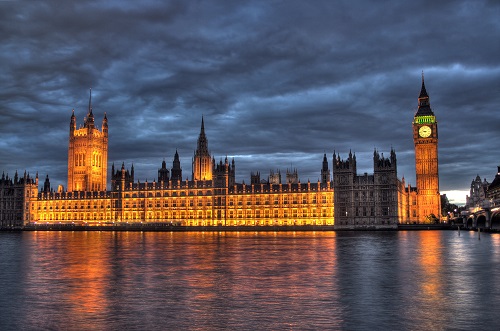
The UK Parliament has taken a step to overturn legislation on two of the most sensitive issues in politics, in violation of an agreement that grants authority over those issues to a lower level of government. The move to legalize abortion and to allow marriage between members of the same sex in Northern Ireland will “drive a coach and horses through the devolution settlement,” according to one Northern Irish Member of Parliament.
On Tuesday, the House of Commons voted to legalize abortion in Northern Ireland, if a devolved government is not restored in Stormont by October 21. The abortion amendment passed 332-99, while the same-sex marriage vote was 383-73. The MPs who voted against the amendment – including Jacob Rees-Mogg – may be found here. Prime Minister Theresa May abstained on both measures. The motion came the same day that an estimated 10,000 people marched in Dublin, in the Republic of Ireland, to support pro-life laws.
While abortion has been legalized in England by the 1967 Abortion Act, Northern Ireland has steadfastly rejected attempts to liberalize the 1861 Offences Against the Person Act. That law, which allows abortions only when the life or permanent health of the mother is at risk, has limited Northern Ireland to a mere 12 abortions in 2017-2018.
“This is a deeply sad day as MPs vote to remove legal protection from the most vulnerable members of society,” said Peter Lynas, director of Evangelical Alliance Northern Ireland. “Equality must treat both mother and child fairly and choice must recognise both lives in a pregnancy.”
While the rest of the UK redefined marriage in 2014, the motion has failed in NI although parliament has held five votes on the matter.
The key legal issue is that both matters are supposed to be decided by the devolved governments in Scotland and Northern Ireland. Westminster overstepped its legally agreed parameters to impose its will on others, who have repeatedly rebuffed efforts to change their views.
Devolution reflects the principle of subsidiarity, or federalism in the U.S. context. “The purpose of devolution is to allow the different parts of the UK to make laws that are appropriate for that part of the country,” said DUP MP Sir Jeffrey Donaldson.
Roger Kiska analyzes the peril of this action in a new essay for Religion & Liberty Transatlantic. Kiska – who is a solicitor for England and Wales, a member of the Michigan State Bar, and legal counsel for the Christian Legal Centre in London – is uniquely positioned to describe the underlying legal issues, as well as the social strife these amendments are likely to engender.
Kiska writes:
The problem with this political opportunism is that is comes at an incredibly high price. Peace with Northern Ireland came slowly and violently. The Parliament of the United Kingdom would do well to recall the blood, violence and conflict that precipitated the Good Friday Agreement and the establishment of a devolved system of government in Northern Ireland. It would do well to pay attention to the growing strife there as well, amidst the backdrop of contentious Brexit negotiations which include the controversial backstop question. We need look no further then April of this year for evidence of growing discontent in the region, when journalist Lyra McKee became a casualty of dissident republican riots in Londonderry which have been labelled by security forces as an act of terrorism.
Devolved government, based on the theory of subsidiarity, has been a guarantor of peace and stability. It has assured all parties have a voice in their own government and helped bring peace among people of divergent national and religious backgrounds. This system ought not be discarded for political opportunism.
(Photo credit: Maurice. This photo has been cropped. CC BY 2.0.)

